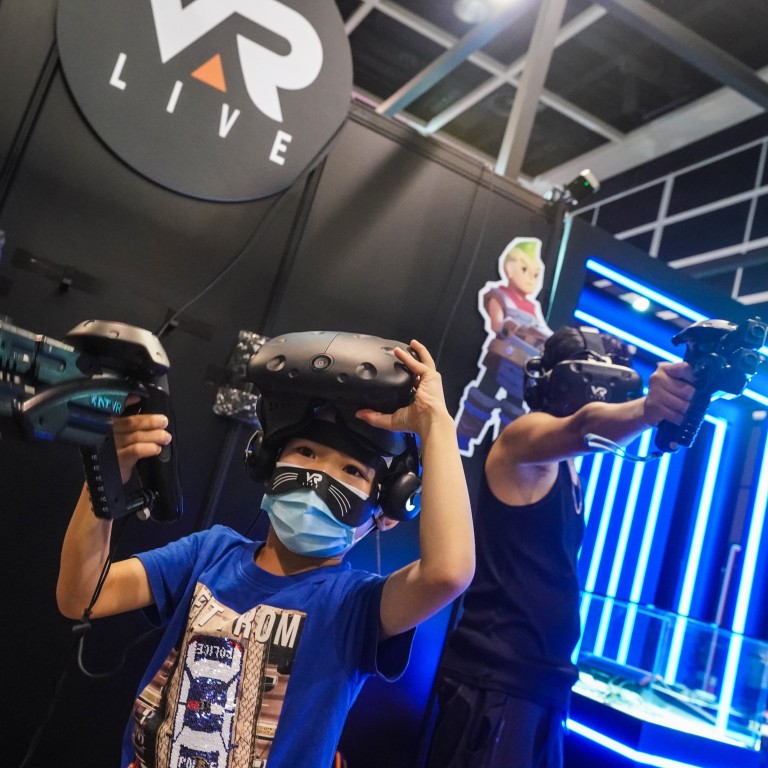
Alibaba joins Tencent in rush to register metaverse trademarks as Big Tech embraces the virtual world
- The e-commerce giant is the latest among a host of Chinese tech companies that have shown interest in technologies that enable experiences in the virtual world
- Virtual and augmented reality start-ups in China have received major investments in recent weeks
E-commerce giant Alibaba Group Holding has filed to register several trademarks related to “metaverse”, joining fellow Chinese tech firms such as Tencent Holdings in exploring opportunities in a virtual world that has been termed the next iteration of the internet.
Alibaba, owner of the South China Morning Post, recently submitted applications to trademark the Chinese terms for “Ali Metaverse”, “Taobao Metaverse” and “DingDing Metaverse”, according to business registration tracking platform Qichacha. Taobao is the name of Alibaba’s flagship online marketplace, while DingTalk is the company’s chat app.
Alibaba did not immediately respond to a request for comment.
China’s Metaverse gold rush is on as investors pile in
The move by the Hangzhou-based conglomerate comes as an increasing number of tech companies in China are scrambling to register Metaverse-themed trademarks in a rush to experiment with the burgeoning concept.
Tencent, owner of multipurpose super app WeChat and operator of the world’s largest video gaming business by revenue, filed in September to register nearly 100 metaverse-related trademarks, including “QQ Metaverse”, “QQ Music Metaverse” and “Kings Metaverse” – corresponding to the names of company’s messaging app, music-streaming platform and marquee mobile game Honour of Kings.
Online video platforms Kuaishou and iQiyi, as well as electric carmaker Li Auto, have also sought to register their own metaverse trademarks.
The concept of metaverse, which first appeared in the 1992 dystopian science fiction Snow Crash by writer Neal Stephenson, is often referred to as a shared, immersive 3D virtual space that is seen by enthusiasts as the future of the internet. The idea has gained momentum following the success of the 2018 Steven Spielberg blockbuster Ready Player One, based on a novel of the same name by author Ernest Cline, which depicts a digital world where users can play, trade or simply hang out.
The buzzword became more popular during the Covid-19 pandemic, as people who were physically confined to their homes took to games like Fortnite and Roblox to socialise and trade digital possessions.
Western tech companies, including Facebook, Epic Games and Roblox, have all made metaverse a central concept to their company mission this year.
Will the coronavirus boost VR?
Meanwhile Chinese tech investors have been pouring money into virtual and augmented reality start-ups.
Last week, Yunfeng Capital, the private equity firm established by Alibaba founder Jack Ma, co-led a US$100 million funding round into augmented reality company Nreal, valuing the company at US$700 million.
Metaverse-themed stocks in China have been riding on the hype. Video game developers that have been marketing themselves as metaverse companies, such as ZQGame and TOM, have seen their share prices more than doubled on the Shenzhen Stock Exchange earlier this month before paring some gains this week.
The metaverse industry is forecast to be worth US$800 billion by 2024, according to a recent Bloomberg Intelligence report.

